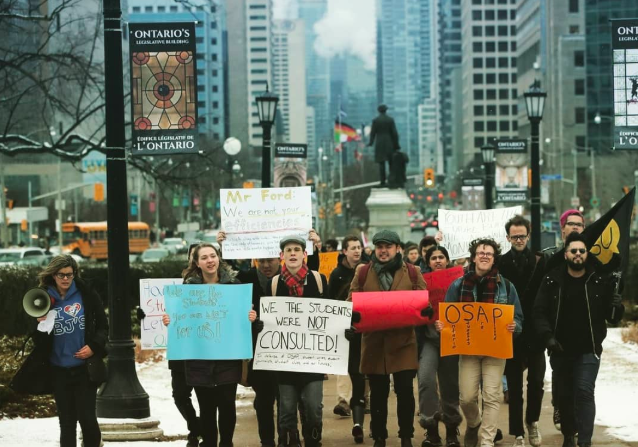Doug Ford’s Ontario Conservative government launched its first substantial policy

By Lisa Descary
It is hard to imagine that anybody who strongly supports public education in British Columbia was thrilled when the BC Liberals pulled off an unwelcome, last-minute election victory in 2013. Given the Liberals’ history of failure to address the basic needs of the public school system, it was plain to see that more trouble was on the horizon. But this time teachers would not just face the ongoing ebb and flow of government cut-backs and attempts at privatization that our union has to push back against, but a perfect storm that would test us like never before.
By Lisa Descary
It’s July in Greater Vancouver. Birds are singing, the sun is shining, and BC public school teachers like me are signing up for picket line shifts. Yes, that’s right: I am walking the picket line in July, a time when my school is not even in session. And I don’t even teach summer school. How did this happen?
By Alan Sears and James Cairns
Almost everywhere you look around the world, policy-makers are introducing big changes to university systems and pondering deeper transformation.It isn’t surprising that these changes take different forms on campuses in countries as different as Canada, Britain, the United States, Chile, Greece, and India, but there are also important common themes in the change agenda globally. These include rapid increases in tuition fees, new models of university governance, new ways of teaching, a significant shift in subject matter, an attempt to depoliticize campuses, and major alterations in employment relations.
By Xavier Lafrance and Alan Sears
The Charest government has turned to repression to try to break the largest and longest student strike in Quebec history. Students had already endured heavy-handed policing, including hundreds of arrests and brutal attacks by riot cops on campuses and in the streets. The new strikebreaking legislation, Bill 78, is a brutal clampdown on the right to organize collectively and on freedom of expression. The protest plans for any demonstrations of more than 50 people must be cleared with the police in advance of any gathering, or the action will be considered illegal. Individual students, staff or faculty members who advocate the ongoing strike action risk harsh penalties, and student unions or university employees unions who organize or support ongoing strike activity will face heavy fines.
By Pierre Mouterde
There is no doubt that with the 2012 student strike, Quebec is going through a decisive moment in its history. But we must now try to measure its exact reach, if only to understand in which direction we should look for a solution to what is increasingly looking like a major educational, but also social and political crisis.